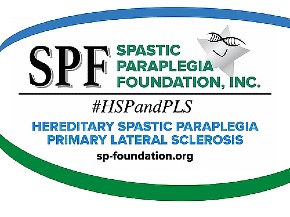Large Czech study of SPAST HSP
Posted - September 2016 in Research Highlights
327 HSPers from 263 families gene tested
21 new SPAST mutations, with the majority being frameshift mutations, were identified in this population, with 7 of these newly found mutations showing up in more than one family.
.
Where there is family history, mutations were detected in 32% of cases, whereas mutations were detected in just 5% of sporadic cases.
Abstract
The SPAST gene has a major role in hereditary spastic paraplegias (HSPs). This is the first report mapping characteristics of the SPAST gene in a large cohort of Czech HSP patients.
All 17 coding exons of the SPAST gene were Sanger sequenced in 327 patients from 263 independent families with suspected uncomplicated HSP. The selected 126 independent patients, without mutation in the SPAST gene after Sanger sequencing, were subsequently tested by Multiplex Ligation-dependent Probe Amplification (MLPA) assay for large deletions or copy number variations affecting the SPAST gene.
Among the 263 independent patients, 35 different, small mutations in 44 patients were found. Twenty-one mutations are novel with the majority of frameshift mutations. Seven mutations were found in more than one family. The age at onset ranged between preschool childhood and the fifth decade with inter- and intra-familiar differences. SPAST small mutations were detected in 16.7% (44/263) of independent tested patients.
Mutations in the SPAST gene were found more frequently in familial cases (with affected relatives). Mutations were found in 31.9% (29/91 familial tested) in the familial patient group, whereas in the sporadic patient group, mutations were found in only 4.7% of cases (5/106 sporadic cases). Among SPAST-positive patients, 65.9% (29/44) were familial but only 11.4% (5/44) were sporadic. MLPA testing revealed four large deletions in four independent patients, all in familial-positive cases. Mutations in the SPAST gene are 5.8 × more frequent in familial than in sporadic cases. Large deletions were found only in familial patients. Diagnostic testing of the SPAST gene is useful only in positive family history patients not in sporadic cases.
SOURCE: J Hum Genet. 2016 Jun 23. doi: 10.1038/jhg.2016.73. [Epub ahead of print] PMID: 27334366 [PubMed – as supplied by publisher]
SPAST mutation spectrum and familial occurrence among Czech patients with pure hereditary spastic paraplegia.
Mészárosová AU1, Putzová M2, Čermáková M2, Vávrová D2, Doležalová K2, Smetanová I2, Stejskal D2, Beetz C3, Seeman P1,2.
1 DNA Laboratory, Department of Child Neurology, Charles University Second Medical School and University Hospital Motol, Prague, Czech Republic.
2 Centre for Medical Genetics and Reproductive Medicine GENNET, Prague, Czech Republic.
3 Department of Clinical Chemistry and Laboratory Medicine, Universitatsklinikum, Jena, Germany.







